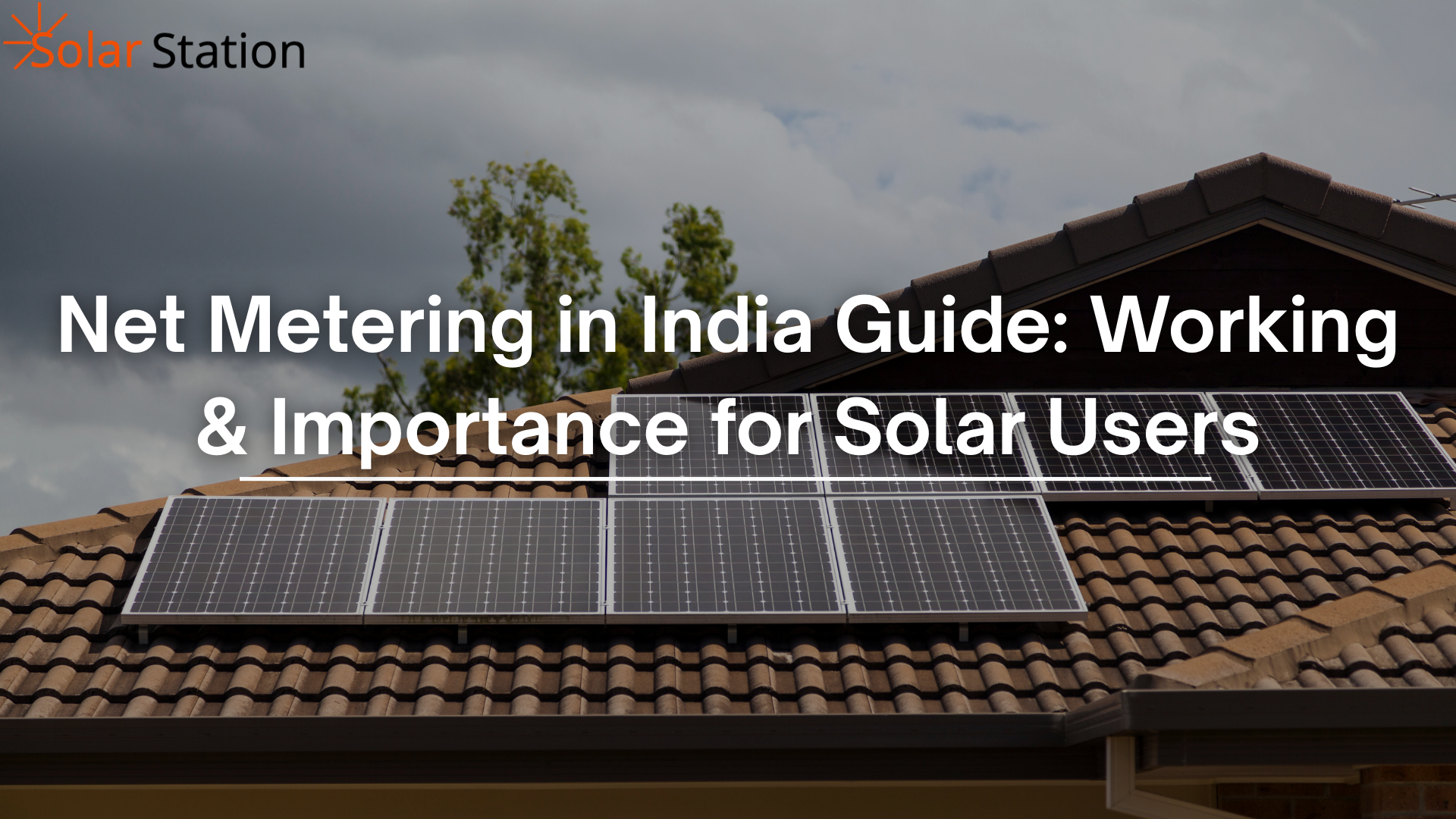
Net Metering in india guide: working & importance for solar users
Date: 2025-08-21
Net metering in India is transforming how households and businesses use solar energy. By allowing users to export excess electricity to the grid and earn credits, it not only reduces power bills but also promotes clean energy adoption. Here’s everything you need to know about how net metering works, its benefits, challenges, and its role in India’s renewable energy future.
India is experiencing a significant shift towards solar energy, with solar power leading the charge in this exciting transformation. Thanks to the government’s commitment to clean energy and the growing demand from both households and businesses, solar rooftop systems are gaining traction. A major factor fueling this trend is net metering in India—a system that helps solar users save money while effectively managing their electricity consumption.
What is Net Metering?
Net metering is a billing system that enables solar power system owners to send excess electricity back to the grid and earn credits for it. In simple terms, when your solar panels produce more electricity than your home or business uses, the surplus is fed into the electricity grid. As a result, your electricity bill reflects credits for the power you’ve exported. This setup allows solar users to fully capitalize on their systems, reducing reliance on the grid and significantly lowering electricity costs.
How Does Net Metering Work in India?
The solar initiative has made net metering more accessible to consumers by streamlining policies and promoting rooftop installations. Here’s a breakdown of how it works:
Solar Power Generation
Solar panels on your rooftop harness sunlight and convert it into electricity. This electricity is first used by your household or business appliances.
Role of Solar Inverter
A solar inverter for home transforms the direct current (DC) generated by solar panels into alternating current (AC), which is what household devices need. Without an inverter, net metering wouldn’t operate effectively.
Excess Energy Export
If your solar system generates more electricity than you consume, the extra energy is sent back to the utility grid.
Bi-directional Net Meter
A special meter, known as a bi-directional or net meter, is installed by the electricity distribution company (DISCOM). This meter tracks both the electricity you import from the grid and the electricity you export back to it.
Billing and Credits
At the end of your billing cycle, your electricity bill will reflect your “net” consumption:
-If you use more electricity than you export, you’ll need to pay the difference.
-On the flip side, if you export more than you consume, those extra credits will roll over to the next month, depending on the specific policies in your state.
Annual Settlement
In most states, any unused credits at the end of the year are settled according to the DISCOM’s policy. Some states might pay you for the surplus units at a set tariff, while others simply reset your balance.
The Importance of Net Metering in India
1. Encourages Solar Adoption
One of the main hurdles to going solar is the upfront installation cost. Net metering makes solar energy more appealing by promising long-term savings on your electricity bills.
2. Reduces Dependency on Fossil Fuels
By enabling consumers to generate and export renewable energy, net metering eases the burden on traditional fossil fuel power plants. This is a significant step towards achieving India’s clean energy goals.
3. Cost Savings for Consumers
With net metering, users can offset their electricity usage, leading to significant reductions in their monthly bills. Over time, this means a faster return on investment for solar panel systems.
4. Grid Support and Efficiency
The excess solar power sent to the grid helps meet local electricity demand, cuts down on transmission losses, and boosts overall grid efficiency.
5. Promotes Energy Independence
Net metering gives households and businesses the power to generate their own electricity, reducing reliance on the grid and protecting them from rising energy costs.
Challenges with Net Metering in India
Policy Variations Across States
Since electricity regulation falls under state jurisdiction, net metering policies can vary significantly, leading to confusion for consumers.
Approval Delays
Getting net metering approval from DISCOMs can sometimes drag on for weeks or even months, which can be quite discouraging for users.
Technical Barriers
Not every DISCOM has the advanced infrastructure needed to support large-scale solar integration.
Uncertainty in Tariff Settlement
In some states, excess credits are reset instead of being paid out to consumers, which can diminish the financial benefits.
The Future of Net Metering in India
The Indian government has set ambitious renewable energy goals, targeting 500 GW of non-fossil fuel capacity by 2030. Net metering is set to be a key player in reaching this target by making rooftop solar more appealing to residential, commercial, and industrial users. Additionally, with the rise of smart grids, battery storage, and energy trading platforms, net metering is likely to evolve into more dynamic systems like gross metering or peer-to-peer energy trading. This evolution will enable solar users not only to reduce their bills but also to sell excess power directly in the energy market.
Conclusion
Net metering isn’t just a way to handle your bills; it’s a key to unlocking the potential of solar power in India, making it more accessible, affordable, and sustainable. If you’re a homeowner or a business thinking about going solar, it’s essential to grasp how net metering works to truly reap its benefits.
By cutting down on electricity costs, bolstering grid stability, and promoting the use of renewable energy, net metering has become a vital part of India’s solar movement. Plus, with supportive initiatives like the solar rooftop program and efficient solutions like home solar inverters, making the switch to solar has never been simpler.
If you’re on the hunt for solar panels, check out solarstation.in to connect with reliable installers who can help you make the most of net metering and boost your solar savings.











